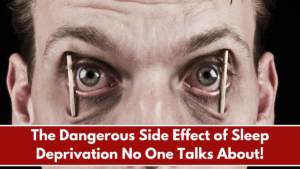Have you ever felt like no matter how much you exercise or diet, you just can’t seem to lose weight? Or worse, have you noticed that during stressful periods in your life, the number on the scale actually goes up instead of down? You’re not imagining it—there’s a strong scientific link between stress and weight gain.
Many people assume that weight gain is just a matter of calories in versus calories out, but the truth is far more complex. Stress triggers a cascade of hormonal and physiological changes in the body that can lead to increased appetite, fat storage, and a slowed metabolism.
In this article, we’ll explore:
- How stress hormones like cortisol affect weight gain
- Why stress makes you crave unhealthy foods
- The impact of stress on metabolism and fat storage
- How to break the cycle and manage stress-related weight gain
By understanding the science behind stress and weight gain, you can take proactive steps to protect your body and maintain a healthy weight—even in stressful times.
The Science of Stress and Weight Gain
1. The Role of Cortisol – The “Stress Hormone”
When you’re stressed, your body releases cortisol, a hormone produced by the adrenal glands. Cortisol is essential for survival—it helps your body respond to threats by increasing energy, sharpening focus, and temporarily boosting metabolism. However, when stress becomes chronic, cortisol remains elevated for long periods, leading to a host of negative effects on weight and health.
High cortisol levels cause:
- Increased fat storage, especially around the belly
- Heightened cravings for high-calorie foods
- Loss of muscle mass, which slows metabolism
- A drop in fat-burning processes
Studies show that people with high cortisol levels tend to store more visceral fat—the dangerous fat that accumulates around the abdomen and organs, increasing the risk of diabetes, heart disease, and metabolic disorders.
2. Why Stress Makes You Crave Junk Food
Have you ever reached for a bag of chips, cookies, or ice cream after a stressful day? This isn’t just emotional eating—it’s actually driven by biological mechanisms in the brain.
When you’re stressed, cortisol increases levels of ghrelin, the hunger hormone, making you feel hungrier than usual. At the same time, stress reduces levels of leptin, the hormone that signals fullness, leading to overeating and cravings for unhealthy foods.
On top of that, stress activates the brain’s reward system, making sugary, fatty, and salty foods even more appealing. These foods trigger dopamine release, creating a temporary sense of pleasure and relief—but in the long run, they lead to weight gain and an unhealthy cycle of stress eating.
3. Stress Slows Down Your Metabolism
Even if you don’t eat more when stressed, your metabolism may slow down, making it easier to gain weight. Studies have shown that stress reduces the body’s ability to burn calories efficiently, causing excess energy to be stored as fat.
One study found that women who experienced a stressful event before eating a high-fat meal burned 100 fewer calories than non-stressed women. Over time, this slower metabolism can contribute to gradual weight gain.
4. Sleep Deprivation, Stress, and Weight Gain
Stress and sleep are closely linked, and lack of sleep can further increase weight gain. When you don’t get enough sleep:
- Cortisol levels stay elevated, keeping your body in fat-storing mode
- Ghrelin levels rise, making you feel hungrier
- Leptin levels drop, reducing your ability to feel full
Sleep-deprived individuals consume more calories, particularly from unhealthy snacks, and are more likely to gain weight over time.
5. The Vicious Cycle of Stress and Weight Gain
Stress creates a self-reinforcing cycle that makes weight gain even harder to control:
- Stress increases cortisol → More fat storage and hunger
- Cortisol increases cravings → Eating more unhealthy foods
- Unhealthy foods cause weight gain → Increased stress over body image
- Weight gain increases stress → Cortisol rises again
Breaking this cycle is crucial to maintaining a healthy weight and overall well-being.
How to Reduce Stress and Prevent Weight Gain
1. Practice Mindful Eating
Instead of eating in response to stress, try mindful eating—slow down, savor each bite, and listen to your body’s hunger cues. Avoid eating in front of the TV or computer, and opt for nutrient-dense foods that keep you full and satisfied.
2. Reduce Cortisol Levels Naturally
Several lifestyle changes can lower cortisol levels and prevent stress-related weight gain:
- Exercise regularly (but avoid overtraining, which can raise cortisol)
- Get at least 7-9 hours of quality sleep per night
- Engage in relaxation techniques like yoga, meditation, and deep breathing
- Avoid excessive caffeine and alcohol, which can spike cortisol
- Spend time in nature or with loved ones to naturally lower stress levels
3. Choose Stress-Fighting Foods
Some foods can actually help combat stress and balance hormones:
- Dark chocolate – Lowers cortisol and boosts mood
- Avocados – Packed with healthy fats that support brain health
- Nuts and seeds – Help regulate cortisol levels
- Fatty fish (like salmon) – Contains omega-3s that reduce inflammation and stress
- Green tea – Contains L-theanine, which promotes relaxation
4. Prioritize Sleep and Recovery
Since lack of sleep contributes to weight gain, prioritize a consistent sleep schedule. Avoid screens before bed, create a relaxing bedtime routine, and limit caffeine intake in the afternoon.
5. Shift Your Mindset Around Stress
Not all stress is bad—some stress can actually be motivating. The key is to change how you perceive and respond to stress. Instead of viewing stress as a threat, reframe it as a challenge that you can handle. This mental shift can reduce cortisol levels and prevent its negative impact on weight gain.
Conclusion
Stress isn’t just an emotional burden—it has real, measurable effects on weight and metabolism. Chronic stress leads to increased cortisol, intense food cravings, a slower metabolism, and poor sleep, all of which contribute to weight gain over time.
However, by understanding how stress affects your body and taking proactive steps to manage it, you can break the cycle and maintain a healthy weight even in high-pressure situations.
By incorporating stress-reducing habits like mindful eating, regular exercise, quality sleep, and a balanced diet, you can keep your hormones in check, prevent excess fat storage, and support your overall well-being.
So next time you feel overwhelmed, remember—managing stress isn’t just good for your mind, it’s essential for your waistline too!
FAQ’s:
1. How does stress contribute to weight gain?
Stress affects weight gain primarily through the release of cortisol, the body’s main stress hormone. When stress levels are high, cortisol signals the body to store more fat, particularly around the belly. It also increases cravings for high-calorie, sugary, and fatty foods because the body believes it needs quick energy to handle the stressor. Additionally, stress slows down metabolism and encourages emotional eating, making it easier to gain weight.
2. Why does stress make me crave unhealthy foods?
When stressed, the body releases hormones that increase hunger and cravings, especially for comfort foods high in sugar, fat, and salt. This happens because stress triggers the brain’s reward system, making these foods more appealing. Additionally, cortisol increases ghrelin levels, the hunger hormone, which can make you feel hungrier even if you’ve eaten recently. This is why people under stress often reach for junk food rather than healthy options.
3. Does stress slow down metabolism?
Yes, stress can slow down metabolism. Studies have shown that when people are under stress, their bodies burn fewer calories than when they are relaxed. This occurs because cortisol reduces energy expenditure and encourages fat storage. Additionally, stress leads to muscle loss, which further slows metabolism since muscle tissue burns more calories than fat.
4. How does lack of sleep due to stress affect weight gain?
Poor sleep caused by stress has a major impact on weight gain. When you don’t get enough rest:
- Cortisol levels stay elevated, keeping your body in fat-storing mode.
- Hunger hormones become imbalanced—ghrelin (hunger hormone) increases while leptin (satiety hormone) decreases, making you crave more food.
- Fatigue reduces physical activity, meaning fewer calories are burned.
- Late-night snacking increases, leading to excessive calorie intake.
Over time, these factors contribute to gradual weight gain and difficulty losing fat.
5. Can stress-related weight gain be reversed?
Yes, stress-related weight gain can be reversed by making lifestyle changes that reduce cortisol levels and support a healthy metabolism. Some effective ways to combat stress-induced weight gain include:
- Managing stress through relaxation techniques like meditation, yoga, and deep breathing.
- Getting regular exercise, which helps burn calories and lower cortisol.
- Improving sleep habits to regulate hunger hormones.
- Eating a balanced diet rich in protein, fiber, and healthy fats to curb cravings.
- Avoiding excessive caffeine and alcohol, which can spike stress levels.
6. How does emotional eating contribute to weight gain?
Emotional eating occurs when people use food as a coping mechanism for stress, anxiety, or sadness rather than eating due to physical hunger. Stress eating often leads to:
- Overeating calorie-dense foods like sweets, chips, and fast food.
- Mindless eating, where you consume extra calories without realizing it.
- A cycle of guilt and stress, which leads to more stress and more overeating.
To break the cycle, it’s important to identify triggers, practice mindful eating, and find healthier ways to manage stress, such as exercise or talking to a friend.
7. What are the best foods to eat to reduce stress and prevent weight gain?
Certain foods can help regulate stress hormones and prevent weight gain:
- Dark chocolate – Helps lower cortisol and boost mood.
- Avocados – Rich in healthy fats that support brain and hormone health.
- Nuts and seeds – Provide magnesium, which helps regulate stress.
- Fatty fish (salmon, tuna) – High in omega-3s, which reduce inflammation and cortisol levels.
- Green tea – Contains L-theanine, an amino acid that promotes relaxation.
- Leafy greens – Full of vitamins that support stress management.
Eating a balanced diet with whole, nutrient-dense foods can help combat stress-related weight gain while improving overall health.
8. Does exercise help counteract stress-related weight gain?
Yes! Exercise is one of the most effective ways to reduce stress and prevent weight gain. Physical activity helps by:
- Lowering cortisol levels, reducing stress-induced fat storage.
- Boosting endorphins, improving mood and reducing emotional eating.
- Increasing metabolism, helping you burn more calories even at rest.
- Regulating appetite hormones, reducing stress-related cravings.
Both cardio (running, walking, cycling) and strength training are beneficial. Even low-impact activities like yoga and stretching can help reduce stress and support weight management.
9. Can meditation and relaxation techniques help prevent stress-related weight gain?
Absolutely! Mindfulness practices can help manage stress and prevent stress-induced eating. Techniques such as:
- Meditation – Helps lower cortisol and increase awareness of eating habits.
- Deep breathing exercises – Reduces stress responses and promotes relaxation.
- Progressive muscle relaxation – Helps relieve tension in the body.
- Spending time in nature – Reduces stress hormones and boosts mental well-being.
By incorporating stress-reducing activities into your daily routine, you can lower cortisol levels and avoid stress-related weight gain.
10. How can I break the cycle of stress and weight gain?
Breaking the stress-weight gain cycle requires a holistic approach:
- Identify stressors – Understand what’s causing stress in your life.
- Manage cortisol levels – Reduce stress through relaxation techniques and exercise.
- Improve sleep – Aim for 7-9 hours of quality sleep per night.
- Practice mindful eating – Pay attention to hunger cues and avoid emotional eating.
- Stay active – Engage in regular physical activity to burn calories and lower stress.
- Choose healthy foods – Eat a balanced diet with lean proteins, fiber, and healthy fats.
- Seek support – Talk to friends, family, or a therapist if stress feels overwhelming.
By taking control of stress levels, you can prevent unwanted weight gain and improve both physical and mental well-being.



